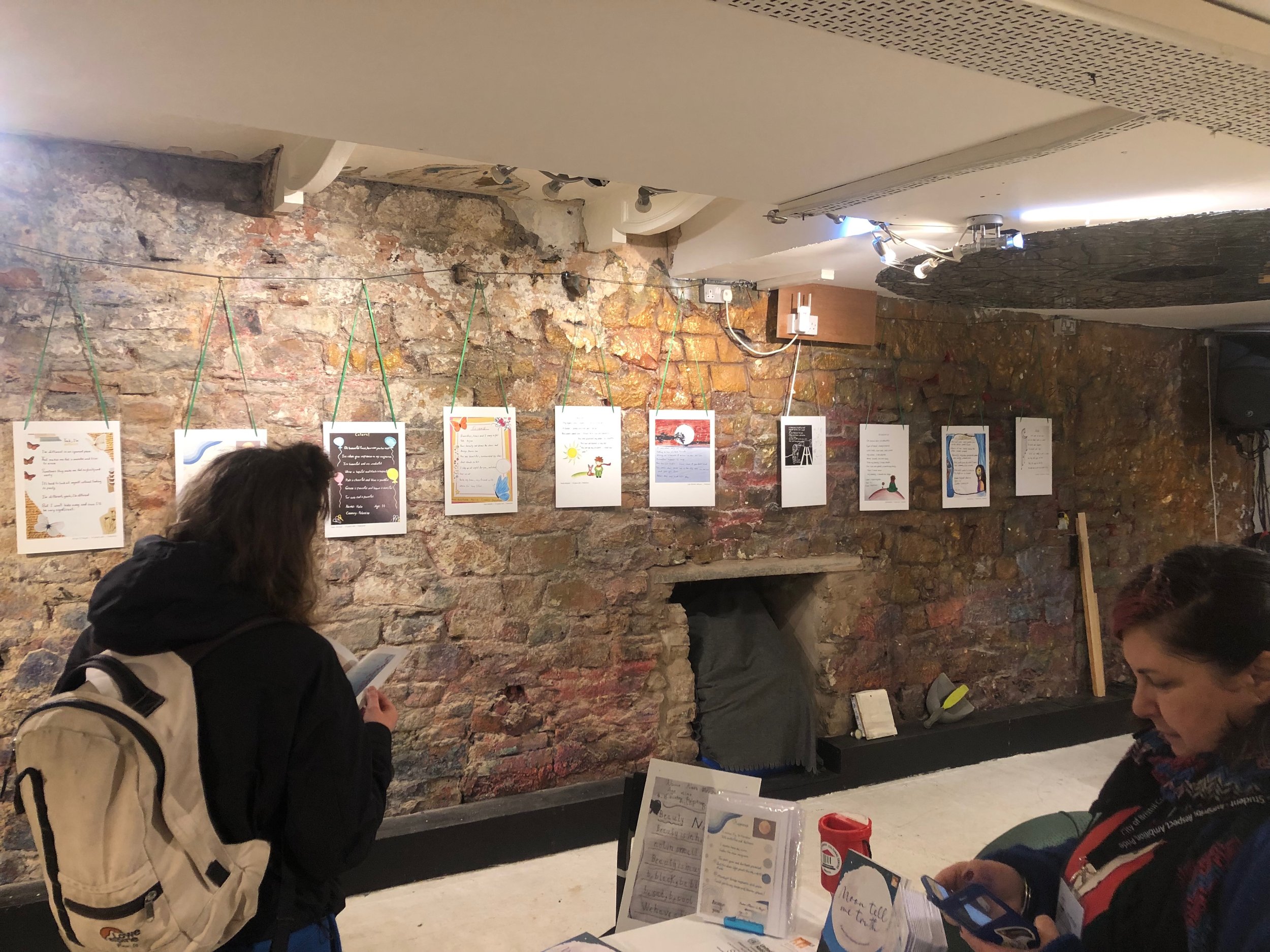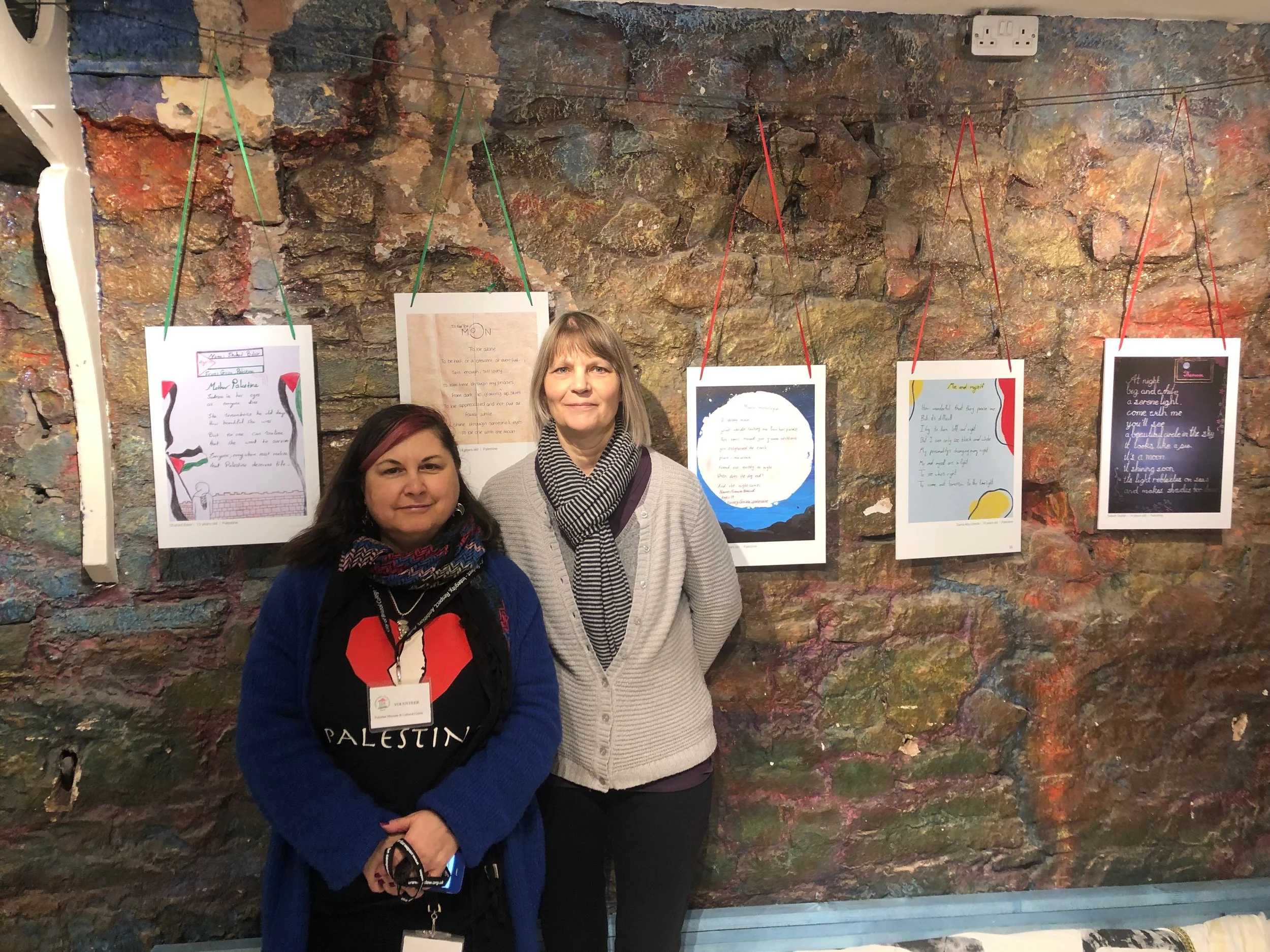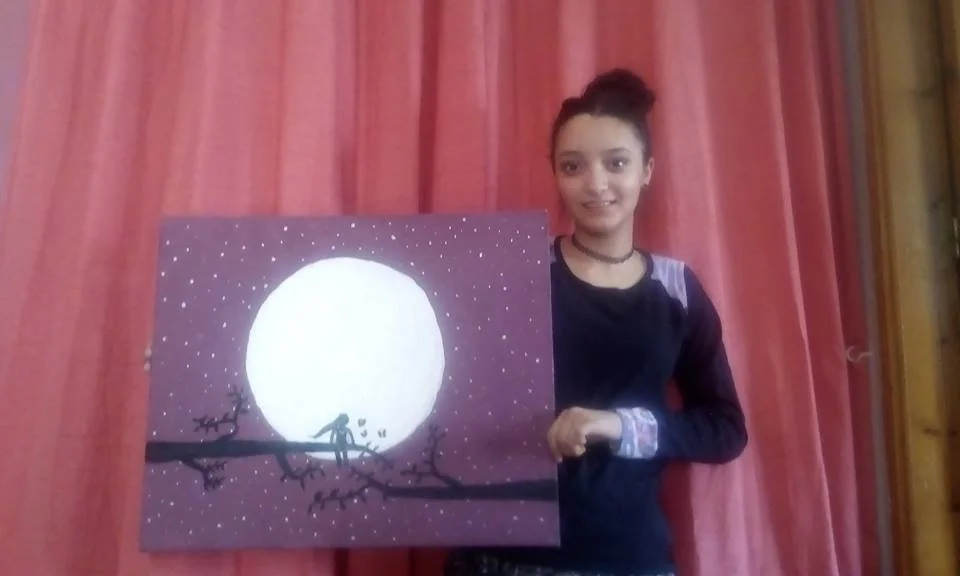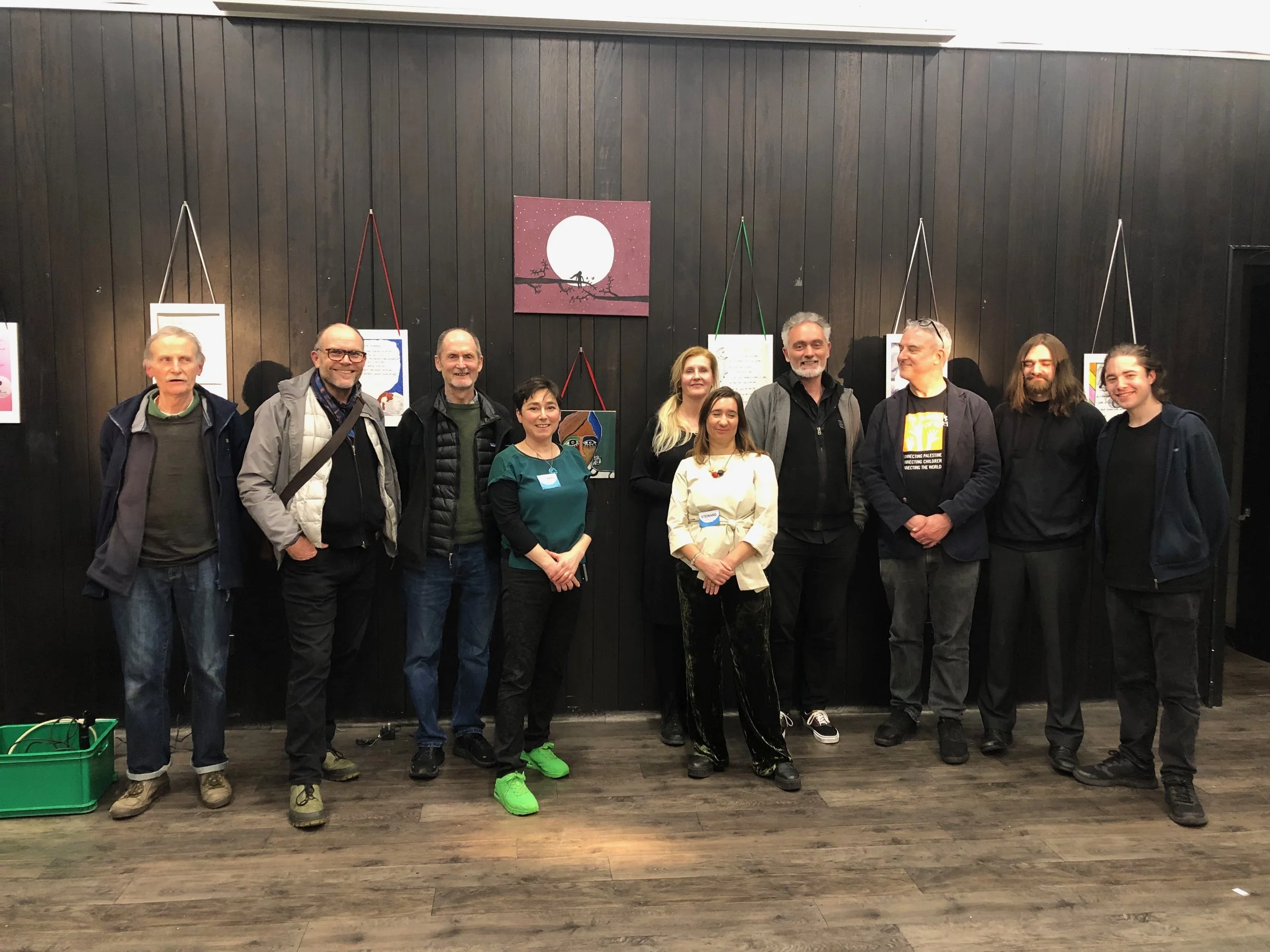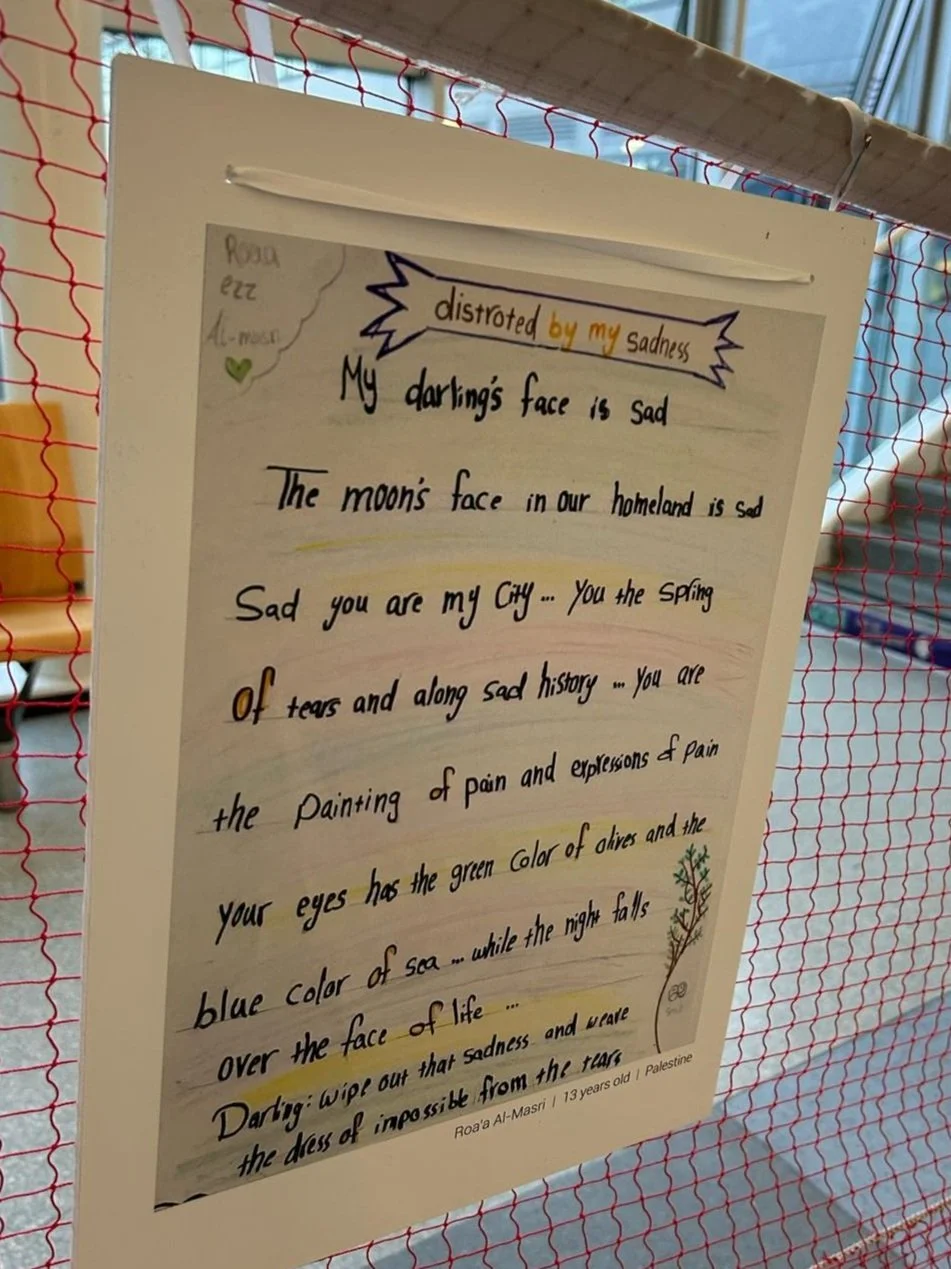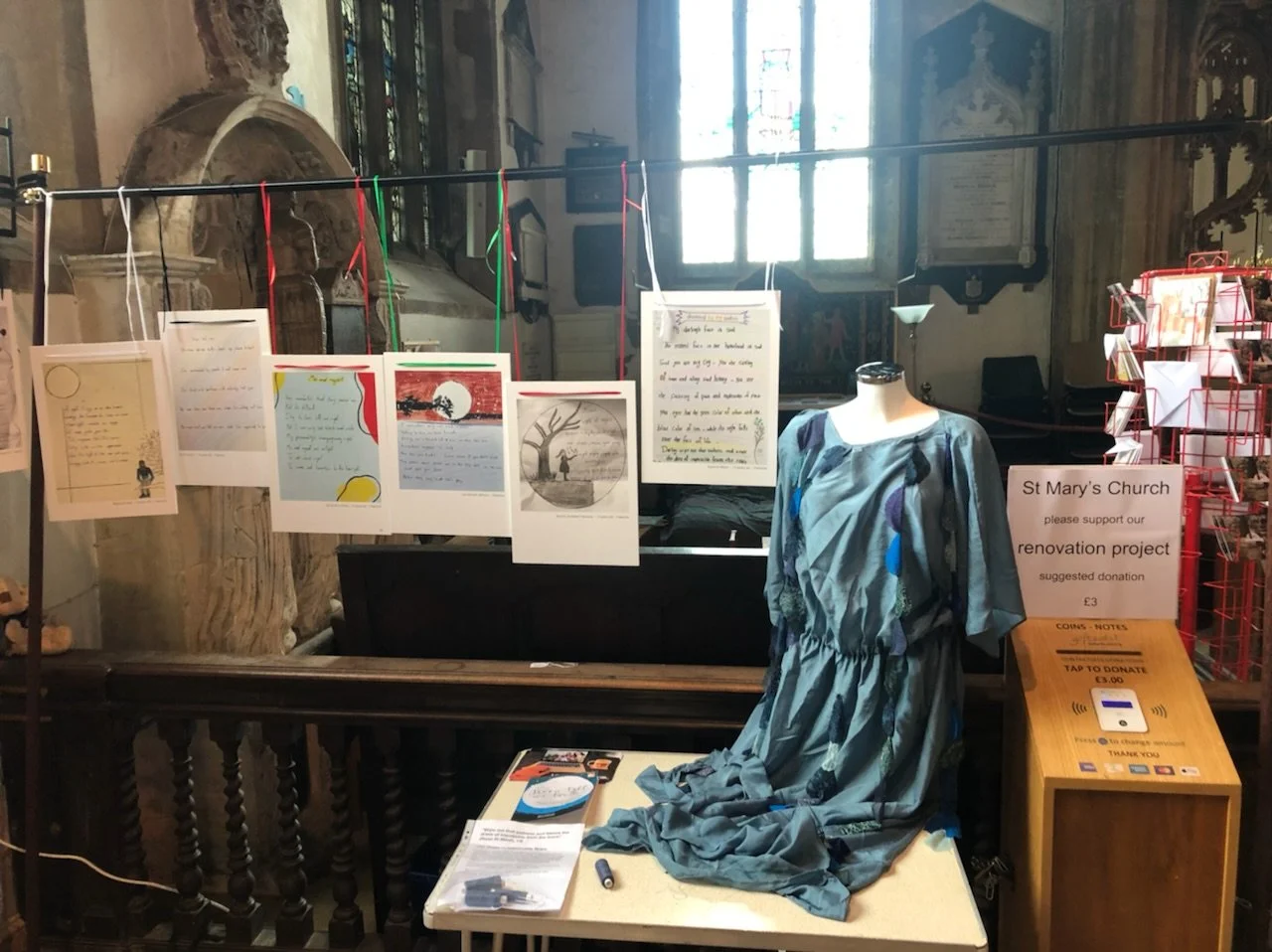The Moon tell me truth exhibition
This blog post is by playwright and poet, and long term volunteer with the Hands Up Project, Peter Oswald…
The first location of the exhibition - The Palestine museum in Bristol
With Rosabel and Helen from the Palestine museum, Bristol
Has there ever been an exhibition like this?
Children in a besieged enclave write poems inspired by two paintings. They enter them for a competition and the competition poems are made into a book, complete with the two paintings and illustrations by the poets for their poems.
Then the enclave is subject to what the (grown-up) poet Tamim Al-Barghouti describes like this: No city in Palestine has witnessed a massacre of this magnitude, probably, since 1099. He is referring to the capture of Jerusalem by the crusaders, when the streets were ankle-deep in blood.
At least two of the children whose poems are in the book are killed. Meanwhile the poems, and the pictures, are made into an exhibition that travels the UK and beyond. At rallies and events supporting Palestine, and at openings of the exhibition, the poems are read out. Fatema Saidam, killed last October aged nine, with her whole family, she lies as dead as Homer and Sappho, and her words are working in the world just like theirs:
Legs are for walking slowly
And also run
Hands are for shaking with friends
Not for shooting gun
Most of the children chose to respond to one of the paintings, by Layla Mohammed, now aged twenty and trying desperately to get herself and her family out of Rafah into Egypt. You can support Layla with this here.
It shows a girl sitting on the branch of a tree, looking at the full moon, with miraculous night-butterflies flying around her. Hard to imagine a stronger evocation of the longing for peace, for another world; of childhood – solitude crowded with butterflies. The moon is huge, both far away and right there, and one by one the poets called on that moon to comfort them, guide them, and give them hope.
Layla in Gaza city in 2018 when she presented her painting to Nick Bilbrough.
Layla’s painting taking pride of place at the exhibition in Hastings
Layla thrust the painting into the hands of Nick Bilbrough, six years ago, just as he was leaving Gaza after a spell of visiting the Hands up drama clubs in schools there. Despite the difficulties of transportation she insisted he took it, and it hung on his wall for years, gently suggesting the idea of the competition. At last – just at the right time – the idea dawned, and the poems and pictures were gathered, shortly before catastrophe engulfed Gaza.
Now they bring to us, through all the present noise and horror, an echo of ancient Arabic (and Hebrew) poetry, the old yearning for peace that fixes its eyes on the moon.
One of the poems in the exhibition in St James’ comprehensive school, Exeter.
The ‘dress of impossible’ - part of the exhibition in St Mary’s church, Totnes

